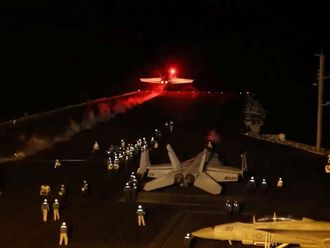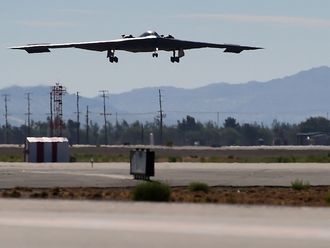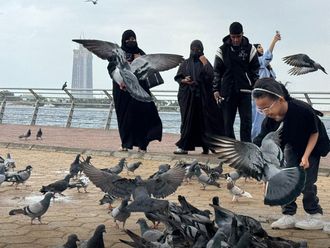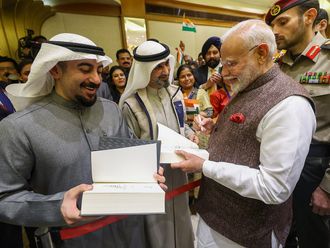Dubai: Iran will have to “capitulate” on its choice for UN envoy after the US refused to issue a visa for seasoned Iranian diplomat Hamed Aboutalebi over his association with a student group that was involved in the 1979 US hostage crisis in Tehran.
Speaking to Gulf News, Theodore Karasik, Director for Research & Consultancy for the Institute of Near East and Gulf Military Analysis, pointed out that this is the first “major” incident that could impact ongoing nuclear talks between Iran and the West following a historic agreement reached last November to curb its activities.
“Iran’s pick for this post is one that the US cannot agree to. I can’t see how this issue will be resolved unless if Iran capitulates and Iran is not a country that often capitulates to anything,” he said.
On Friday, the Obama administration informed Iran that it would not grant Aboutalebi a visa.
“We’ve communicated with the Iranians at a number of levels and made clear our position on this — and that includes our position that the selection was not viable,” White House spokesman Jay Carney said. “Our position is that we will not be issuing him a visa.”
Aboutalebi is alleged to have participated in a Muslim student group that held 52 Americans hostage for 444 days during the embassy takeover. He has insisted his involvement in the group Muslim Students Following the Imam’s Line was limited to translation and negotiation. Denying visas to UN ambassadorial nominees or to foreign heads of state who want to attend United Nations events in the US is extremely rare, though there appears to be precedent.
According to a paper published by the Yale Law School, the United States rejected several Iranians appointed to the UN in the 1980s who had played roles in the embassy hostage crisis or other acts against American citizens. Iran’s choice of Aboutalebi had pinned President Barack Obama between congressional pressure to deny the envoy entry into the US and the White House’s delicate diplomatic dealings with Tehran. After more than three decades of discord, US and Iranian officials have started having occasional direct contact, including a phone call last year between Obama and new Iranian President Hassan Rouhani. The US and its international partners also have reached an interim agreement with Iran to halt progress on Tehran’s disputed nuclear programme. Officials are in the midst of negotiating a long-term agreement to prevent Iran from building a nuclear weapon.
Officials said Undersecretary of State Wendy Sherman, the chief US negotiator in the nuclear talks, informed Iranian officials involved in discussions in Vienna this week about the visa decision. The White House said it did not expect the negotiations, which are due to resume next month, to be affected by the matter.
Senator Chuck Schumer, Democrat-New York, said allowing Aboutalebi into the US “would have been a slap at all American victims of terrorism, not just those taken hostage in 1979. We’re glad the Obama Administration made this choice, and Iran should stop playing these games.”
American officials said Iran still has time to withdraw the nomination and application, suggesting the US has simply chosen to not act on the visa instead of outright rejecting it. Without a US visa, Aboutalebi would not be allowed to enter the United States. Iran could nominate a different ambassador or have Aboutalebi occupy the post from overseas.
Despite the decades-long tensions between the US and Iran, the Islamic Republic maintains a robust diplomatic mission at UN headquarters in New York. The US frequently allows visas for representatives from countries it disfavours, including Syria and North Korea, but restricts their diplomats’ movements and activities to a 40-kiloemtre radius of New York City.
There have been previous instances where officials accused of terrorism or deemed to pose a threat to the US have sought visas to appear at the UN, including with a previous Iranian nominee in the early 1990s and more recently with Sudanese President Omar Al Bashir. In most cases, the US has either signalled opposition to the applicant and the request has been withdrawn, or the State Department has simply declined to process the application.
With inputs from AP












